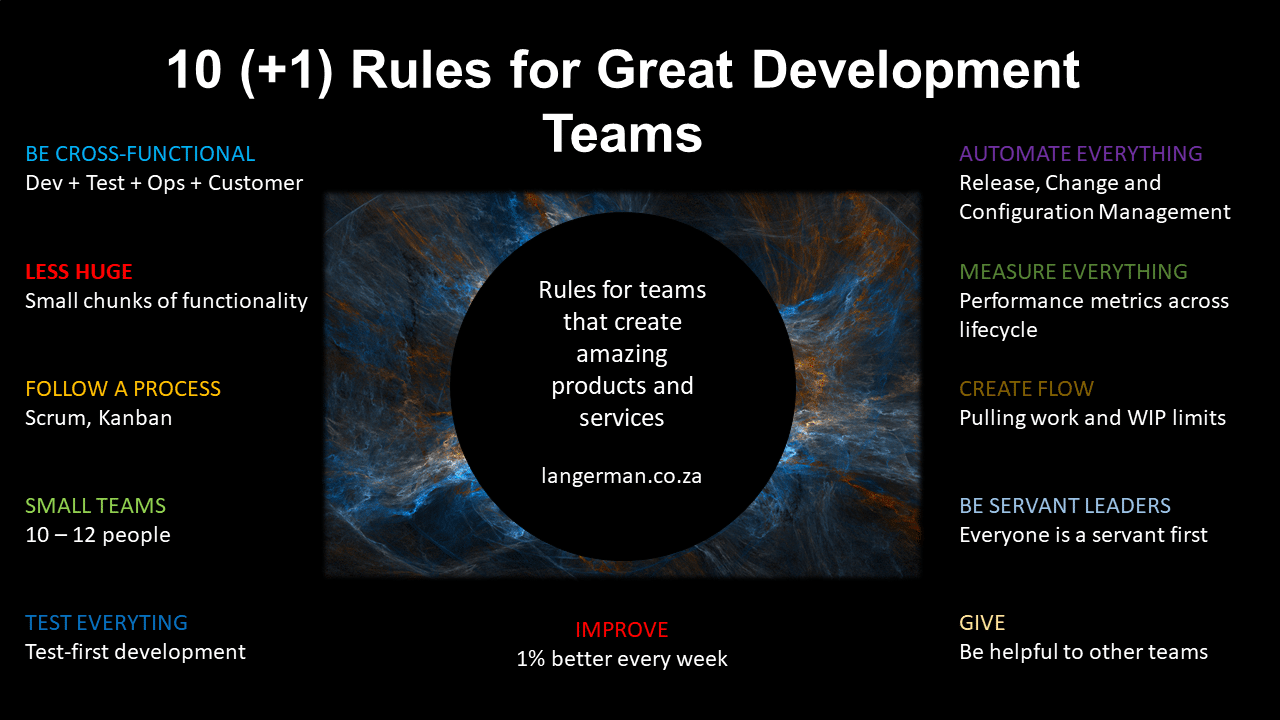South Africa is apparently at the edge of an abyss. Slow growth and poverty are a scourge on this beautiful land. At the root of this is joblessness. Currently 27% of South Africans are not employed. There is probably nothing that touches the dignity of a human being more than being without a job. The effect of this on the fiscus, societal stability and the political rhetoric is immense. Fortunately we in the Information Technology (IT) industry can do something about it.
The Problem
There are few industries that have the muscle and the resources to meaningfully create jobs. The IT industry in South Africa is uniquely positioned to affect societal change. South Africa is the third largest spender in the world on IT as a percentage of GDP. This means we are punching far above our weight as our GDP is only ranked 41st in the world. The other side of the coin is that a large part of IT in South Africa is outsourced and/or offshored. Of the South African companies that outsource or plan to outsource, 71% of them outsource IT.
Our universities are not turning out enough students to fill the demand for IT professionals. This in turn leads to greater levels of offshoring which means that the entry level jobs that should be used as a foundation to build skill and mastery are located elsewhere. Things are improving though. Currently 28.1% of all tertiary enrolments in South Africa are in the Sciences, Technology, Engineering or Medical fields.
DevOps and Agile are management methodologies that emphasize small cross functional teams, that are co-located. Teams work closely together and decisions are made as close to the work as possible. There is also an emphasis on mastery and skill. Offshore teams break these models. We know that 71% of projects are constrained or failing which means that our traditional approaches to software development are clearly not working.
The Solution
By embracing these modern management philosophies, we not only have a greater chance at project success but we also fix our country by insisting on local co-located development. In addition we should focus on mastery and start aggressively training our people. This will enable us to move work back to South Africa and start building skill within the country.
An example from Standard Bank
And the change to small co-located teams is working. Standard Bank has followed this process during the last two years. The bank invested heavily in training of its IT staff. The normal management training has been bolstered and programmes for deep technical training were added. What typically would have been spent on MBA type curricula is now spent on growing the skill of technical ninjas. Around 40 technical people have gone through or are in the process of going through this intense type of training. In a lot of cases the in-house technical experts are presenting some of the training. Context saves lives and who better to do this than your internal people?
The training initiatives together with a shift to Agile and DevOps methodologies has allowed Standard Bank to move at least 200 jobs back to South Africa during 2016. Another 200 are planned for 2017. This means 400 individuals that did not have a job before will have the opportunity to join the IT industry. Well done to Standard Bank on this.
The country needs you
 The call to action is very simple. Stop complaining about the state of South Africa or the world and be the change you want to see. A simple 3-step programme is a great start:
The call to action is very simple. Stop complaining about the state of South Africa or the world and be the change you want to see. A simple 3-step programme is a great start:
- Intensely train people. Spend the same on training your top technical people as you would on your management professionals.
- Embrace modern management philosophies like Agile and Devops that focus on the actual work.
- Reduce offshoring by moving work on-shore.
By embracing these three steps we will leave our children a better and more sustainable legacy.



